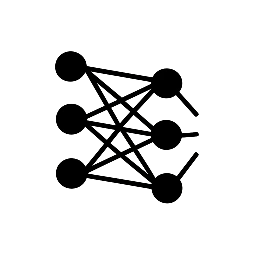When I think about the future impact of artificial intelligence, few applications excite me as much as its potential in healthcare. Perhaps it’s because the promise of AI in medicine touches something fundamentally human – our collective desire to live longer, healthier lives and to alleviate suffering. As someone who has dedicated my career to understanding and implementing these technologies, I believe healthcare represents one of the most valuable frontiers for AI and machine learning.
Why Healthcare AI Inspires Me
From my perspective, the application of AI in healthcare goes beyond technical achievement – it represents hope. Hope for earlier cancer detection, hope for personalized treatments, hope for extending quality of life, and hope for making healthcare more accessible to people everywhere. When I consider all the possible applications of artificial intelligence, I keep returning to healthcare as the domain where these technologies could make the most meaningful difference in human lives.


Transformative Fields for AI in Medicine
1. Diagnostics and Medical Imaging
AI is revolutionizing how we detect and diagnose diseases:
- Radiology: Machine learning algorithms can analyze X-rays, CT scans, and MRIs with remarkable accuracy, often detecting subtle abnormalities that escape the human eye.
- Pathology: AI systems can examine tissue samples and identify cancerous cells with precision, speeding up diagnosis while reducing errors.
- Ophthalmology: Deep learning models can detect diabetic retinopathy and other eye conditions from retinal scans, enabling early intervention.
2. Drug Discovery and Development
The traditional drug development process is incredibly time-consuming and expensive. AI is transforming this landscape by:
- Identifying promising drug candidates in silico, reducing the need for extensive lab testing
- Predicting how compounds will interact with targets in the body
- Accelerating clinical trials through optimized patient selection and monitoring
3. Personalized Medicine
Perhaps the most exciting frontier is personalized treatment approaches:
- AI algorithms can analyze a patient’s genetic information, lifestyle factors, and medical history to recommend tailored treatment plans
- Predicting individual responses to specific medications, minimizing trial-and-error prescribing
- Identifying patients at high risk for certain conditions before symptoms appear
4. Predictive Analytics and Preventive Care
The old adage “prevention is better than cure” is being supercharged by AI:
- Analyzing patterns in electronic health records to identify patients at risk for diseases like diabetes, heart disease, or sepsis
- Monitoring real-time patient data to predict and prevent adverse events
- Identifying public health trends from population data to enable proactive interventions
5. Administrative Efficiency
While less glamorous, AI’s impact on healthcare administration could be transformative:
- Automating routine tasks like scheduling, billing, and documentation
- Optimizing hospital resource allocation and staff scheduling
- Reducing administrative burden on healthcare professionals, allowing more time for patient care
6. Remote Monitoring and Telemedicine
The pandemic accelerated telemedicine adoption, and AI is making it more powerful:
- Wearable devices combined with AI can continuously monitor patients with chronic conditions
- AI-powered chatbots can provide initial symptom assessment and direct patients to appropriate care
- Remote diagnostics can bring specialist expertise to underserved areas
A Balanced Perspective
As enthusiastic as I am about healthcare AI, I recognize it’s not a panacea. These technologies are tools to augment healthcare professionals, not replace them. The human elements of care – empathy, ethical judgment, and the healing touch – remain irreplaceable.
Furthermore, we must navigate significant challenges: ensuring data privacy, addressing algorithmic bias, obtaining regulatory approval, and maintaining trust in these systems. The path forward requires collaboration between technologists, healthcare providers, regulators, and patients.
The Future We Can Build
What excites me most is that we’re just scratching the surface of what’s possible. As AI technologies continue to evolve and our understanding of biology deepens, the synergies between these fields will unlock treatments and capabilities we can barely imagine today.
For those entering the field of AI and machine learning, healthcare represents not just a career path but an opportunity to contribute to something profoundly meaningful. It’s a chance to apply our technical skills to solve problems that matter – to help create a future where more people can live healthier, longer lives.
In my journey through data science and AI, healthcare applications continue to inspire me most because they represent technology at its best: not replacing humanity, but amplifying our ability to care for one another.
— Dal Skoric

Leave a Reply